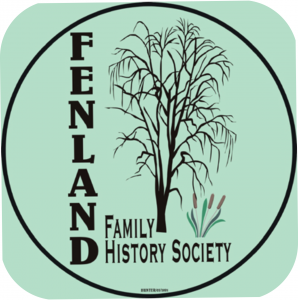Alan Johnson, Peterborough and District Family History Society
Alan gave an informative talk with lots of ideas and encouragement to get each and every one of us to write a family history to make sense of all the materials that we have gathered together. By way of encouragement he asked each of us to consider how much material we have that will be of no value to anyone else because only we know what is there.
Alan has written nine family histories so far and each one has started with a few basic questions. Who is the history for? – in the first instance Alan wrote a history of one person for his mother and aunts. What is the scope? – is it one branch, one individual or all descendants of a common ancestor? Where will you stop? – will you include information about you, your parents or children? Alan also asked people to consider sensitive issues and to be prepared not to include material that may cause distress; it may be possible to embargo that material until some time in the future.
On a practical note, how will you produce the information? – longhand and typing are probably impractical so using a PC is probably the best option as it is easier to edit and to add material as well as to circulate especially if you use Word or PDF rather than a publishing programme. You also need to consider the form in which it will be produced: a printed book or booklet which can be expensive; a CD or on the Web; Alan has used report folders for the printed versions of his family histories which have the advantage of being able to be added to or amended easily as well as using CDs.
Having decided to write the history, you need to be specific about the information that will be included in the history and be organised about the order. In the introduction indicate what will be included and what will not. Always include a family tree, acknowledge your sources and use illustrations where available and always be aware of copyright. If you have lots of information it may be appropriate to write a separate history of a spouse.
Alan recommended finishing the history with a sentence such as “That concludes all that I have found out about X so far” or with an anecdote.
Alan gave an interesting and informative talk, let’s hope that it inspires each of us to put together at least one family history ……………….
[Margaret Lake ]
January meeting: Kevin Rodgers – Wisbech workhouse
As most members know, Kevin is a prolific writer on Wisbech local history. He owned up that after publishing a book he tries to forget
